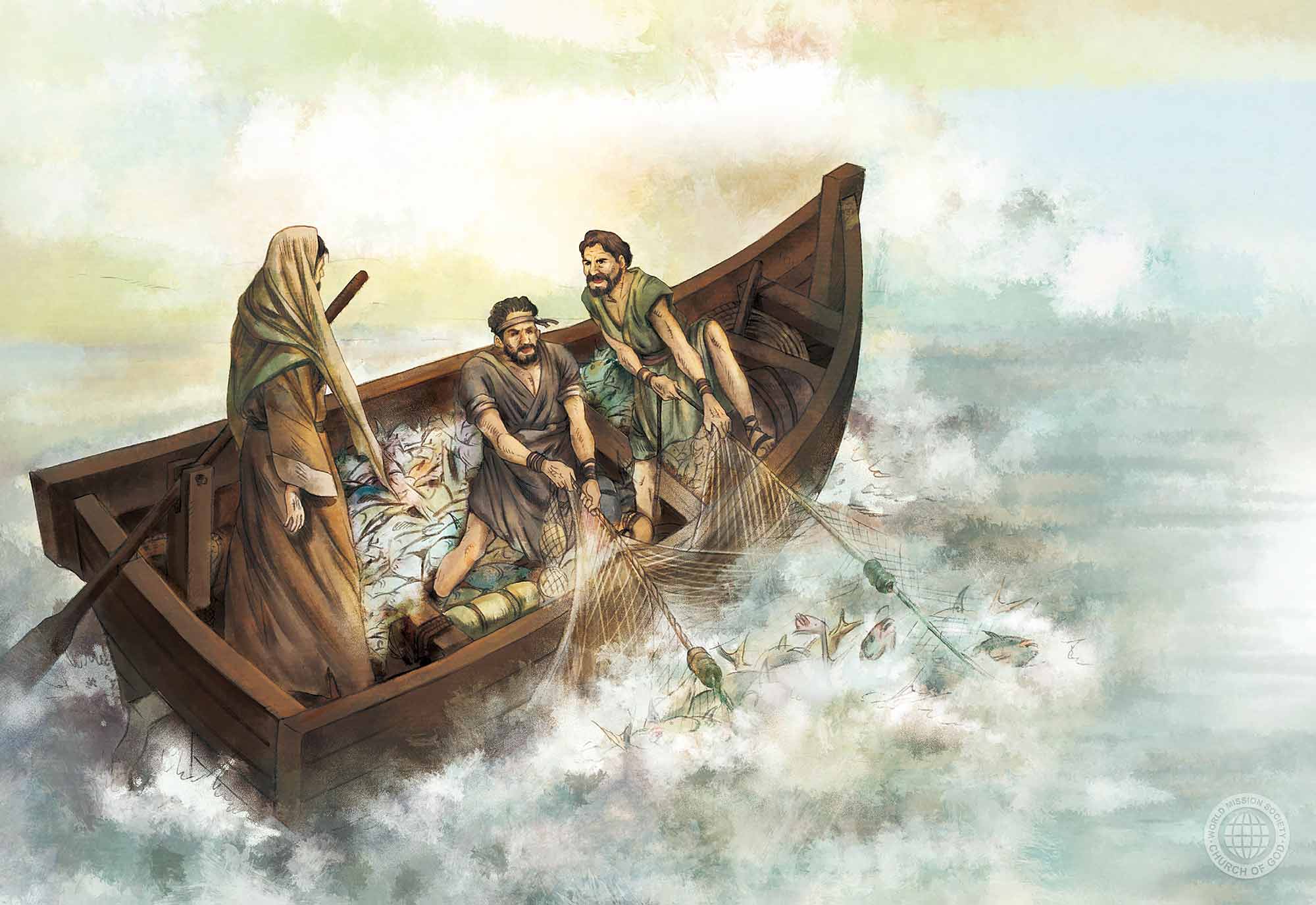
One day as Jesus was standing by the Lake of Gennesaret, a large number of people crowded around Him to listen to Him teach the word of God. Then He saw two boats at the water’s edge, and got into one of the boats, the one belonging to Simon Peter, and taught the people from the boat.
When Jesus had finished speaking, He said to Peter.
“Put out into deep water, and let down the nets for a catch.”
“Master, we’ve worked hard all night and haven’t caught anything. But because you say so, I will let down the nets.”
When Peter let down the nets as Jesus had told him to, he caught such a large number of fish that the nets began to break. So they signaled their partners in the other boat to come and help them, and they came and filled both boats so full.
Peter was a fisherman, who was well aware of the waterway and the routes of shoals of fish. As a skilled fisherman, he knew how to catch a lot of fish—when to let down the nets and when to pull them up.
From his long experience as a fisherman and his deep knowledge of fishing, Peter might have thought that it was useless to try to row the boat out into the deep water and let down the nets again. He must have been tired from working all night and felt like going home quickly to get some rest. Nevertheless, he put out into the deep water and let down the nets again. He was willing to lay aside his own experience and knowledge in obedience to Jesus’ words.
If you are an expert in something, you may be more likely to depend on your own experiences and knowledge, especially when you want to compromise with reality. In any and every situation, however, we must put God’s words above anything else. God never commands us to do something just to give us trouble; every word of God brings forth blessings for us (Dt 8:11-16).
Putting aside our own thoughts, let us try to fathom God’s will first and depend on every word from God. Then we will be able to receive God’s tremendous blessings which we have never experienced before.